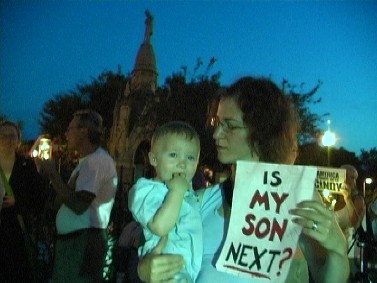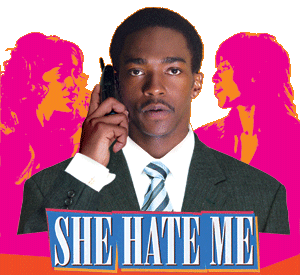t r u t h o u t - Conyers to Object to Ohio Electors, Requests Senate Allies
t r u t h o u t - Conyers to Object to Ohio Electors, Requests Senate Allies: "
By William Rivers Pitt
Thursday 30 December 2004
Representative John Conyers, ranking minority member of the House Judiciary Committee, will object to the counting of the Ohio Electors from the 2004 Presidential election when Congress convenes to ratify those votes on January 6th.
In a letter dispatched to every Senator, which will be officially published by his office shortly, Conyers declares that he will be joined in this by several other members of the House. Rep. Conyers is taking this dramatic step because he believes the allegations and evidence of election tampering and fraud render the current slate of Ohio Electors illegitimate.
'As you know,' writes Rep. Conyers in his letter, 'on January 6, 2005, at 1:00 P.M, the electoral votes for the election of the president are to be opened and counted in a joint session of Congress. I and a number of House Members are planning to object to the counting of the Ohio votes, due to numerous unexplained irregularities in the Ohio presidential vote, many of which appear to violate both federal and state law.'
The letter goes on to ask the Senators who receive this letter to join Conyers in objecting to the Ohio Electors. 'I am hoping that you will consider joining us in this important effort,' writes Conyers, 'to debate and highlight the problems in Ohio which disenfranchised innumerable voters. I will shortly forward you a draft report itemizing and analyzing the many irregularities we have come across as part of our hearings and investigation into the Ohio presidential election.'
There are expected to be high level meetings with high ranking Democratic officials next week to coordinate a concerted lobbying effort to convince Senators to challenge the vote. The Green Party and David Cobb, as has been true all along, will be centrally involved in this process, as will Rev. Jesse Jackson.
The remainder of the Conyers letter reads:
3 U.S.C. §15 provides when the results from each of the states are announced, that "the President of the Senate shall call for objections, if any." Any objection must be presented in writing and "signed by at least one Senator and one Member of the House of Representatives before the same shall be received." The objection must "state clearly and concisely, and without argument, the ground thereof." When an objection has been properly made in writing and endorsed by a member of each body the Senate withdraws from the House chamber, and each body meets separately to consider the objection.
"No votes...from any other State shall be acted upon until the (pending) objection...(is) finally disposed of." 3 U.S.C. §17 limits debate on the objections in each body to two hours, during which time no member may speak more than once and not for more than five minutes. Both the Senate and the House must separately agree to the objection; otherwise, the challenged vote or votes are counted.
Historically, there appears to be three general grounds for objecting to the counting of electoral votes. The language of 3 U.S.C. §15 suggests that objection may be made on the grounds that (1) a vote was not "regularly given" by the challenged elector(s); and/or (2) the elector(s) was not "lawfully certified" under state law; or (3) two slates of electors have been presented to Congress from the same State.
Since the Electoral Count Act of 1887, no objection meeting the requirements of the Act have been made against an entire slate of state electors. In the 2000 election several Members of the House of Representatives attempted to challenge the electoral votes from the State of Florida. However, no Senator joined in the objection, and therefore, the objection was not "received."
In addition, there was no determination whether the objection constituted an appropriate basis under the 1887 Act. However, if a State - in this case Ohio - has not followed its own procedures and met its obligation to conduct a free and fair election, a valid objection -if endorsed by at least one Senator and a Member of the House of Representatives- should be debated by each body separately until "disposed of".
A key legal aspect of this is the second clause referenced in the letter. Rep. Conyers and the other House members involved do not believe the electors have been lawfully certified. They believe that there has been too much illegal activity on the part of Blackwell, other election officials, and Republican operatives on the ground and therefore, as stated in the letter, the electors were not "lawfully certified" under state law.
Next week, the House Judiciary Committee Democratic staff will release the report referenced in the letter, which is now still in draft form, and which led Mr. Conyers to this decision.
The Senators who shall receive the greatest focus from Conyers in this matter are Biden, Bingaman, Boxer, Byrd, Clinton, Conrad, Corzine, Dodd, Dorgan, Durbin, Feingold, Harkin, Inyoue, Jeffords, Kennedy, Kerry, Lautenberg, Leahy, Levin, Lieberman, Mikulski, Nelson (FL), Jack Reed, Harry Reid, Rockefeller, Sarbanes, Stabenow, Wyden and Obama.
-------------------------------------------------------------------------------- William Rivers Pitt is a New York Times and international bestseller of two books
'War on Iraq: What Team Bush Doesn't Want You to Know' and
'The Greatest Sedition is Silence.'
-------
(In accordance with Title 17 U.S.C. Section 107, this material is distributed without profit to those who have expressed a prior interest in receiving the included information for research and educational purposes.
(t r u t h o u t has no affiliation whatsoever with the originator of this article nor is t r u t h o u t endorsed or sponsored by the originator.)
Print This Story - E-mail This Story

 Song for Cindy Sheehan Video
Song for Cindy Sheehan Video




































 Madeleine BAROUKHEL-MOUREAU
Madeleine BAROUKHEL-MOUREAU 




























0 Comments:
Post a Comment
<< Home